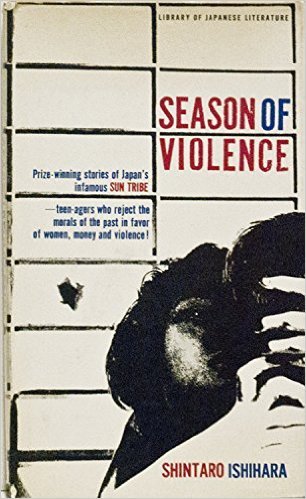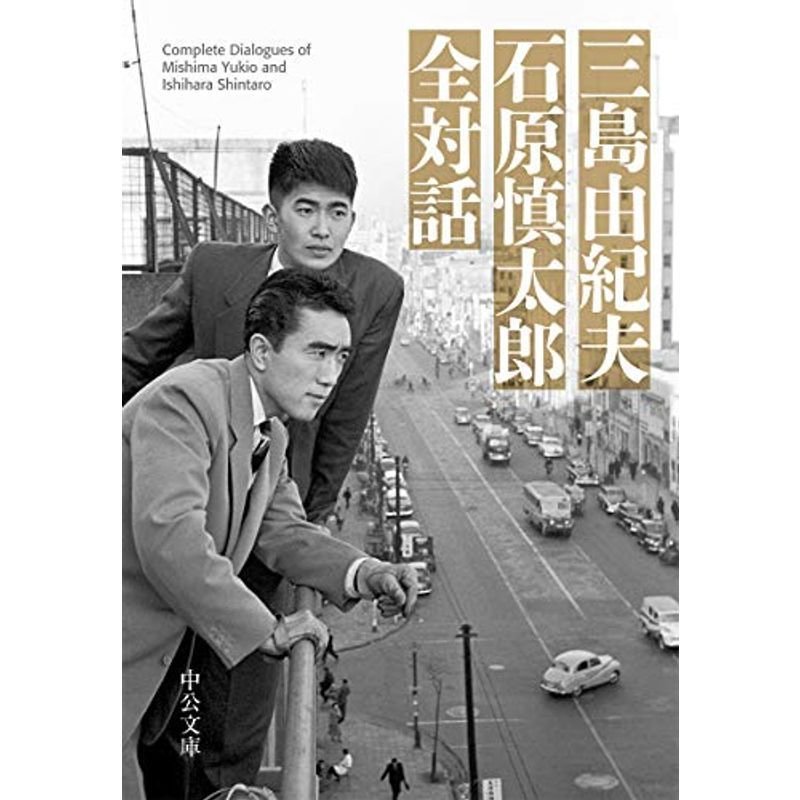by Kaori Shoji
At least it wasn’t a long, protracted goodbye. Ishihara would have hated that.
On February 1st, Shintaro Ishihara, long-time ex-governor of Tokyo and former Minister of Transportation (among other credentials) died. He was 89 years old. He was one of the last guardians of Japanese patriarchy as well as a charismatic politician. The unapologetic, racist, brash and chauvinist Ishihara had both supporters and opponents, including Yuriko Koike, the current mayor of Tokyo who was the first woman to hold the position. Ishihara referred to her on more than one occasion as ‘obasan (old woman)’ and Koike accused the man of running Japan’s capital city into the ground.
(Editor’s note: Even Koike can be right. Shinginko Tokyo, the bank created by Ishihara using Tokyo’s funds was a tremendous failure, leaving huge debts behind. However it did provide a windfall for Kanto yakuza).
Ishihara hated outspoken women and liberal men; he had no kind feelings for the US and refused to be enthralled or intimidated by western culture. Ishihara reserved his most acidic venom for China. For thirty years, he railed against the government in Beijing and demanded that Tokyo annex the non-populated Senkaku Islands (located several hundred miles north of the Yaeyama Islands in Okinawa) instead of permitting Chinese fishermen to fish there.
In 2002, a group of Tokyo women tried to take him to court for inappropriate statements made on TV, in which he expressed agreement with a Tokyo University professor that “women who are past their child-bearing years should not live on until old age. Men can propagate the species until their 80s and 90s but women living into their 80s is a disease of civilization.”
The man was a rightist, elitist, racist, misogynist, patriarchal pig. I hope I didn’t leave out anything.
But he also had an unmistakable, evocative allure, what in Japanese is known as ‘hana’. It was hana that kept him in the Governor’s seat for over a decade and hana that launched his bestsellers, like The Japan That Can Say No and Genius.
Ishihara had a bit of Donald Trump in him but unlike the ex-prez he had no interest in flaunting his women and stuck with the same wife he married in 1955. As Tokyo governor he wielded an influence on par with New York counterpart Andrew Cuomo, though Ishihara never got slapped with a harassment suit.
There were always rumors of shady doings going on inside his lavish office in the Tokyo Metropolitan Government Building. A handful of young female aides quit with generous severance payouts. A male assistant tried to commit suicide because he couldn’t stand the Governor’s bullying.
Now that Ishihara’s gone, any dirty secrets will stay firmly bolted in the closet (maybe). Japanese political staff are for the most part, exceedingly loyal and any boss worth their salt knows it. Back in 2002, I was at Ishihara’s press conference and was struck by how his staff anticipated his every word and the slightest of head-nods, rushing to follow his orders before they were even given. Tall, imposing and suave, he made most of his contemporaries look like scrapings from a drain pipe. One thing you have to admit: he was well-bred, well-read and carried himself accordingly.
Born in Kobe in 1932 to wealthy parents, Ishihara was a novelist before becoming a politician, and a politician before becoming Tokyo’s longest serving governor. At the age of 21 when he was at Hitotsubashi University, Ishihara won the Akutagawa Award (Japan’s highest literary prize) for Taiyo no Kisetsu (Season of the Sun) which was adapted for the screen starring his younger brother Yujiro.

Editor’s note: That the book won a literary prize says terrible things about Japan in the 1960s. The book was later translated as Season of Violence and this review from GoodReads sums it up succinctly:
Heterosexual Mishima — which is to say not written with any grace or artful tact but with a similar vision of violent machismo and drama: erections breaking through paper (shoji) doors and young rapists clinging to life as they drag their cut apart bodies across the street, prostitutes at sea, cruelty as sport and pastime. Tatsuya in the eponymous novella is so terrible and frightening it made me sick.
‘What have I been to you all these weeks?’
“A woman,” he shrugged.
Together, the Ishihara brothers created a brand not unlike a powerful mafia family. While Shintaro sired four boys and did his best to dent what he saw as Nagatacho’s (Tokyo’s equivalent of Capitol Hill) slavish, pro-American policies. Yujiro formed his own film production company called Ishihara Gundan (Ishihara Army Corps), mimicking big bro’s penchant for strutting machismo.
He had no offspring but had a knack for gathering tall, muscular male performers into the Ishihara brand orbit. Yujiro was probably the first Japanese male to pull off a leather jacket over tight jeans and have sex on the beach in front of a camera. Shintaro was a badass nationalist with a big mouth. In his youth, he wore bespoke suits and palled around with Yukio Mishima. When the latter committed seppuku, Ishihara arrived at the scene to show his moral support and politely tell the press to f*ck off.

Shintaro outlived his little brother by 35 years but cancer got him in the end. On the day, his widowed sister-in-law (herself an actress who starred in Season of the Sun) appeared in the media to express her sadness.His four sons, two of whom are politicians, appeared in the news to attest to their dad’s astonishing vitality. “He kept writing, right up until a week ago,” said second son Yoshizumi Ishihara, who is a successful actor and emcee. His eldest, Nobuteru Ishihara who two months before had quit his position as advisor to Prime Minister Kishida, after losing in the general elections to the daughter of a vegetable seller and single mother, said tearfully that he hoped he could live up to his old man.
However, even Ishihara’s most vocal critics grudgingly admit that when the chips were down, he was someone you could rely on.
When the 3.11 disaster struck Northeast Japan he moved to send aid and resources to Fukushima and the Tohoku area faster than any other prefecture. He worked to remove almost 170,000 tons of rubble and trash from the tsunami-hit region and cart the loads into Tokyo for disposal, despite strong opposition from the capital city residents. When asked how the Metropolitan Office should respond to irate Tokyoites, he held a press conference to say “These people should be told to shut up. There’s nothing else to say to them. I mean, how selfish can these people get?”
He arranged housing for people who lost their homes and was also responsible for building shelters for domestic violence victims. Personally, I was always grateful that he banned diesel vehicles from Tokyo streets and delivered much on his promise to green up the city.
Ishihara was a monstrous mass of contradictions and in the end, he couldn’t keep up with newfangled notions of gender equality, BLM, diversity and tolerance and globalism. That being said, I know I’m not the only one who feels Tokyo has lost something. It’s probably for the better but all the same, we’ll never get it back.
****
Shintaro Says The Darndest Things
After Yoshiro Mori was fired from the Tokyo Olympics Committee for saying that women’s speeches tended to be too long, the same committee should have made clear the length of the speech(es) in question. Otherwise, it’s unfair.
From his online column, Feb. 12, 2021
The preface of the Japanese constitution reeks of white supremacy and is strewn with grammatical errors, as if it had been hastily translated from English to Japanese by a bad translator.
From ‘Will’ magazine, July 2020
–The most stellar evidence of true manhood is self-sacrifice for the greater good.
From sankei.com, Dec. 19, 2016
Recently, I’ve been witnessing male actors impersonating females on television. What does this mean? Has the world decayed and gone mad?
The rise in gays and lesbians….I can only think that these people are genetically subnormal. Poor things, they’re minorities in society.
Thank you for this excellent obit. I have cited it on Debito.org this morning.
“Ruminations on Ishihara Shintaro’s death: Good riddance to an evil man.”
http://www.debito.org/?p=16982
Sincerely, Debito
Thank you very much for the comment and the citation. Happy New Year!